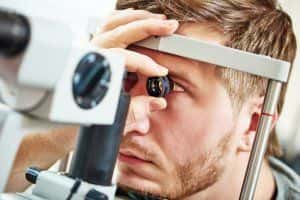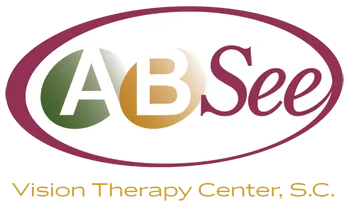Did you know that your eyes are an extension of your brain? There are six muscles connected to each eye, and they receive signals from the brain. These signals direct the eyes movements and, thus, control their ability to focus. When you are stressed, your brain goes through a number of changes and signals
Read more
Glaucoma is an eye condition that is often characterized by an abnormally high intraocular pressure (i.e., pressure in the eye), which can ultimately damage the optic nerve. The added intraocular pressure is the result of fluid accumulation in the eye. If left untreated, it can result in complete vision loss.
Glaucoma may not produce any noticeable changes in your vision until the disease is more advanced. That’s why having regular eye exams starting at age 40 — or earlier for certain ethnic groups — is an important part of preventing loss of vision from glaucoma.
Currently, there is no cure for glaucoma. In addition, any damage to the optic nerve cannot be reversed. Once glaucoma has been diagnosed, though, several treatments including medicated eye drops and surgery are available. Treatments may slow the damage and prevent further loss of vision.
The surgical procedures performed to treat glaucoma include:
- Laser surgery (laser trabeculoplasty). This approach is performed to open drainage canals in the eye that are clogged.
- Filtering surgery (trabeculectomy). With this surgical technique, a small piece of tissue is removed to allow fluid to drain properly from the eye.
- Placement of a drainage implant, such as iStent. With this treatment option, your ophthalmologist inserts a small tube into the eye that allows excess fluid to drain.
If you notice any changes in your vision, contact us for an appointment, so we can diagnose your vision problem and provide suitable treatment options. If your vision suddenly becomes blurry and is accompanied by severe eye pain, nausea, headache, reddening of the eye or halos, contact your eye doctor or go to the emergency room immediately, as this may be a sign of vision-threatening acute angle-closer glaucoma.
-
Stress and Vision
Category: Protecting Your Eyes
-
Pain Management
Category: Protecting Your Eyes
We take a lot of aspects of our vision for granted. We expect to see nearby and faraway objects clearly, even if we require our eye care provider to prescribe eyeglasses or contact lenses to do so. A huge degree of the information we take in about our world and our surroundings takes place visually,
Read more -
Nutrition for Eye Health
Category: Protecting Your Eyes
Eating right is essential for keeping your body healthy. This is as true for your eyes as it is for your heart. A diet that is rich in fresh fruits, vegetables and whole grains, and is low in saturated fat, can reduce your risk of heart disease. This will also keep your arteries healthy, so they can
Read more -
Lifestyle Practices for Eye Health
Category: Protecting Your Eyes
Protecting your eyesight is an important part of staying healthy overall. Maintaining sound eye health will also help you preserve your quality of life as you age. To keep your eyes as healthy as possible, follow these simple lifestyle practices. Get regular eye exams. Some eye problems — including
Read more -
Glare and Halos
Category: Vision Problems
Glare and halos are both eye symptoms that some people experience around bright lights. Halos show up as bright circles around a light source. Glare is light that interferes with your vision, making it difficult to see or sometimes making your eyes water. These symptoms can show up at any time of the
Read more -
UV Radiation and Your Eyes
Category: Protecting Your Eyes
Optometry warnings about the damaging effects of ultraviolet radiation on our eyes have not yet reached the degree of public awareness of that of skin damage. Yet, the sun can be just as damaging upon our eyes with unprotected exposure. Short-term exposure to very bright sunlight can result in a type
Read more -
Lazy Eye
Category: Pediatric Vision
Lazy eye, also referred to as amblyopia, is a condition that develops in infancy or early childhood, and it typically starts when the focus in one eye is more enhanced than the other. The eye with less focus might be impaired due to a significant amount of farsightedness or astigmatism, or something
Read more -
Pediatric Ophthalmology
Category: Pediatric Vision
Ophthalmology addresses the physiology, anatomy and diseases of the eyes. Pediatric ophthalmology focuses on the eyes of children. Pediatric ophthalmologists examine children’s eyes to see if they need corrective lenses or other treatments to improve their vision. Training for Pediatric Ophthalmologists Pediatric
Read more -
September Newsletter: Can Contact Lenses Protect Your Eyes from UV Rays?
Category: Newsletters
-
September Newsletter: How Your Environment Affects Your Eyewear Choice
Category: Newsletters
-
August Newsletter: What Is Swimmer's Eye and How Can It Be Prevented?
Category: Newsletters
-
August Newsletter: The Benefits of Scleral Contact Lenses
Category: Newsletters
-
July Newsletter: Can Eye Exams Detect Diabetes?
Category: Newsletters
-
July Newsletter: Soft vs. Hard Contacts: Pros and Cons
Category: Newsletters
-
June Newsletter: The Importance of Eye Exams for Kids
Category: Newsletters
-
June Newsletter: Can Colored Contacts Help with Vision?
Category: Newsletters
Do you suffer from glare, eyestrain or color blindness? Wearing special contact lenses could help.
Read more
